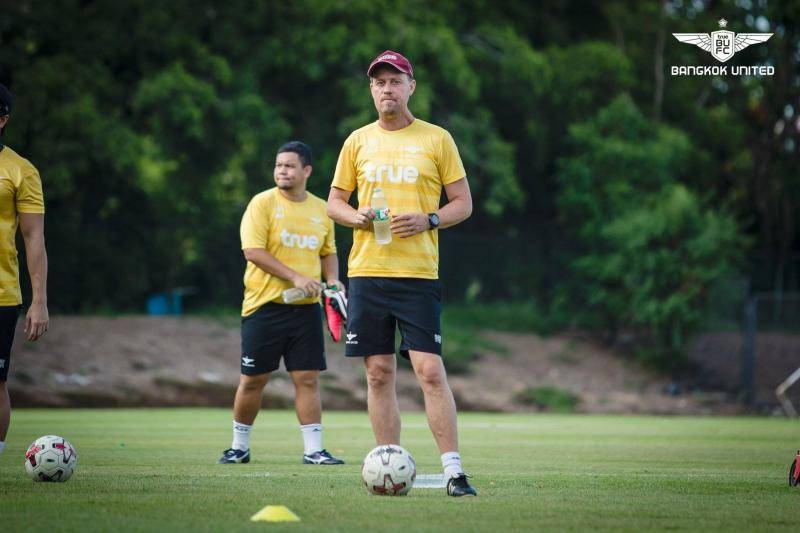
Football Tribe SEA Editor
As the Thai FA is mulling over a move to combine Thai Leagues 3 and 4 into a new National League, top clubs worry about the fate of their B-Team players who will no longer be allowed to participate in the lower divisions. However, Bangkok United are prepared to make the most of the situation, using it to accelerate the development of a new generation.
The Thai FA’s major decision to combine Thai Leagues 3 and 4 has caused reverberations across the country’s football system, as the B-Teams of top-flight clubs may no longer be allowed to participate in the newly formed ‘National League.’
One such beneficiary of this system was Bangkok United, who made good use of their B-team in the preceding seasons and must now find a way to continue the pipeline of youth development despite this dent.
“For us, it is a big loss because this was working very well with the B-Team,” Bangkok United’s head coach Mano Pölking explained. “We could use all the 55 players and rotate between two teams for the cups.”
“Players who didn’t play the game could straight away play 90 minutes the next day,” he added. “We had a lot of advantages from that and that was a very good European-style system.”
However, with B-Teams set to be excluded from the FA’s new National League plan, various clubs have struggled to decide how to handle the large number of young players who may now be forced to struggle for game time in the first team.
Confronted with this issue, the Angels are preparing a new system to continue their promotion of young players despite the setback.
“We decided to make different groups of young players,” Mano explained. “The players that are still [under 19 years old], we kept with us because we believe that they can make the first team,” while also competing in the U-19 league – playing in a similar cycle as the B-Team used to in T4.
“The players that are older than that – 20, 21 or maximum 22 – the ones that we believe that still can do it, we extended their contracts and loaned them to T2 and T3 teams to make them play regularly because with us, they could only train.”
“We will now follow up on what they’re doing in their teams,” Mano elaborated, “and if they make the jump, and if they are good enough after playing regularly, we will just take them back and put them in our squad again.”
This change could actually be for the better, as some have noted that a promising generation of Bangkok United talent struggled to break through under the old system.
Allowing younger players to train the first team may help accelerate their development, while the players who would have previously populated the B-Team will now be forced to prove themselves at a higher level and in a more competitive environment.


